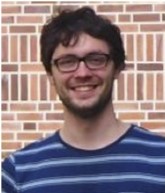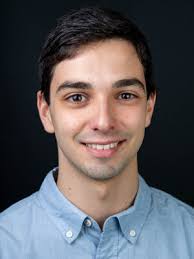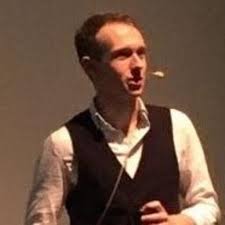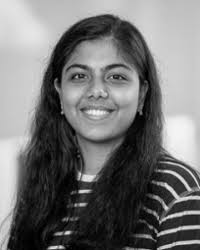12th QSC General Assembly in Leiden
We invite you to the 12th edition of the Quantum Software Consortium (QSC) General Assembly which will be held at Scheltema in Leiden on November 15, 2024. It will be organized by Jonas Helsen and Liubov Markovich. Jonas Haferkamp (Harvard University) will give a key note: Efficient Constructions of Random Quantum Circuits.
There will be several presentations, from mathematics over cryptography and quantum information to experimental quantum optics.


Jonas Haferkamp (Harvard U) Pedro Capitão (CWI Cryptology)
Programme QSC 12th General Assembly
11:00 - 11:30 Coffee and welcome
11:30 - 11:40 Opening by Ronald de Wolf
11:40 - 12.20 Pedro Capitão (CWI Cryptology): Secret Sharing and Other Techniques in Secure Computation
12:20 - 13:30 Lunch
13:30 - 14:10 Jan A. Krzywda (LIACS, Leiden University)
Anyway the Wind Blows: Online Bayesian Tracking and Feedback of Correlated Noise in Spin Qubit Devices
14.10 - 14.50 Kshiti Sneh Rai (LION, Leiden University)
Certification and Optimization of the Spectral Gap and its Applications
14:50 - 15:20 Break
15:20 - 16:10 Jonas Haferkamp (School of Engineering and Applied Sciences, Harvard University)
Efficient Constructions of Random Quantum Circuits
16:10 - 16:15 Closing by Liubov Markovich
16:15 - 18:00 Drinks & snacks


Jan A. Krzywda (Leiden University) Kshiti Sneh Rai (Leiden University)
The venue is at Scheltema, Marktsteeg 1, 2312 CS Leiden.
https://www.scheltemaleiden.nl/contact/
Abstracts
Kshiti Sneh Rai (LION, Leiden University) - Certification and optimization of the spectral gap and its applications
Abstract: Estimating spectral gaps of quantum many-body Hamiltonians is a challenging computational task, even with assumptions of locality and translation-invariance. We propose a rigorous approach using semidefinite
programming to lower-bound the spectral gap, which demonstrates significant improvements over existing finite-size criteria methods. Efficient gap estimation has various applications, including in the adiabatic algorithm and detecting gapped phases of matter.
Additionally, I will mention a result concerning a “gauging” freedom in translation-invariant Hamiltonians, which may be of independent interest.
[1] arxiv:2411.03680 -- A Hierarchy of Spectral Gap Certificates for Frustration-Free Spin Systems
[2] arxiv:2409.15433 -- Spectral Gap Optimization for Enhanced Adiabatic State Preparation
Jan A. Krzywda (LIACS, Leiden University)
Anyway the Wind Blows: Online Bayesian Tracking and Feedback of Correlated Noise in Spin Qubit Devices
Abstract: Processing quantum information using spins of individual electrons (or holes) offers compatibility with existing semiconductor technology but presents unique challenges at the nanometer scale [1]. One of these challenges involves the inevitable interaction with an uncontrolled environment, characterized by spatial and temporal correlations. While this may complicate error correction and mitigation protocols, it also provides an opportunity to employ data-driven approaches for real-time qubit control and calibration.
As a proof of principle, in this talk, I will discuss an experimental demonstration of Hadamard and phase gates driven by noise [2], and the potential for improvement through physics-informed [3] and reinforcement learning techniques [4]. This research paves the way towards more scalable quantum computers that use a data-driven approach to adapt to environmental noise.
[1] G. Burkard et al., Rev. Mod. Phys. 95, 025003 (2023).
[2] F. Berritta, T. Rasmussen, J. A. Krzywda, et al.. Nature Communications, 15(1), 1676 (2024).
[3] F. Berritta, J. A. Krzywda, Physical Review Applied, 22(1), 014033 (2024).
[4] J. Benestad, J. A. Krzywda et al, arXiv:2309.15014 (2023).
Pedro Capitão (CWI, Amsterdam)
Secret Sharing and Other Techniques in Secure Computation
Abstract: How can multiple people or organizations jointly compute some information of interest from their private data without disclosing to each other more than strictly necessary? This is the central problem of secure multi-party computation (MPC). Though at first glance it might even look impossible to solve, it turns out cryptography has the necessary tools and some fascinating ways to use them.
In this talk I will give a brief overview of the topic of MPC and highlight a few interesting techniques, such as (homomorphic) secret sharing, with which we can tackle this important problem.

